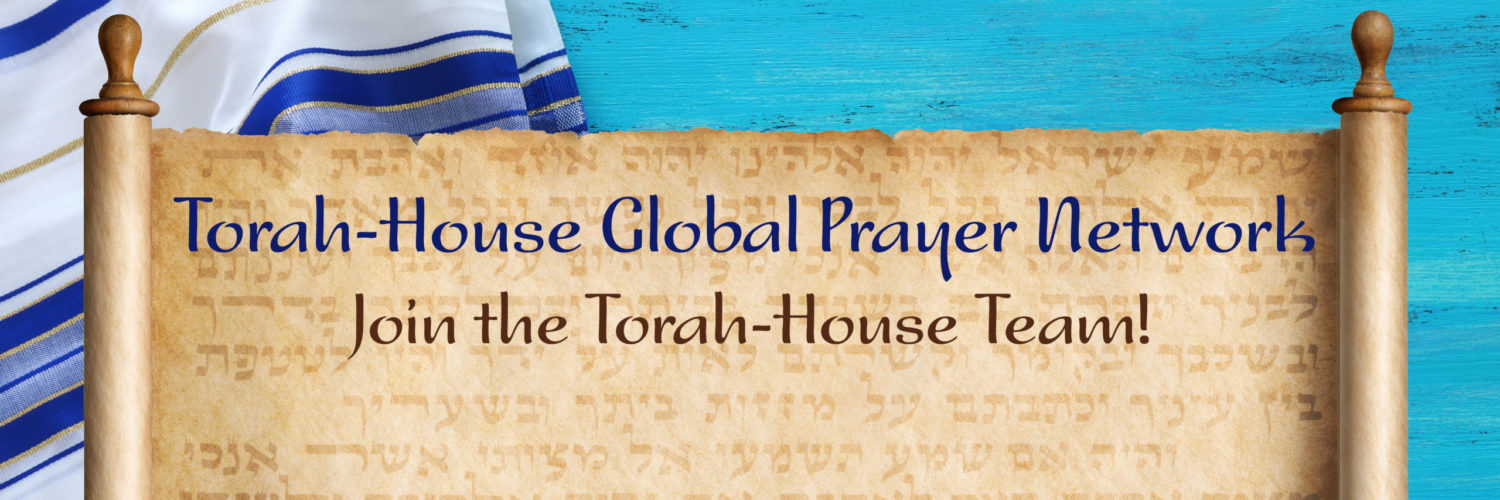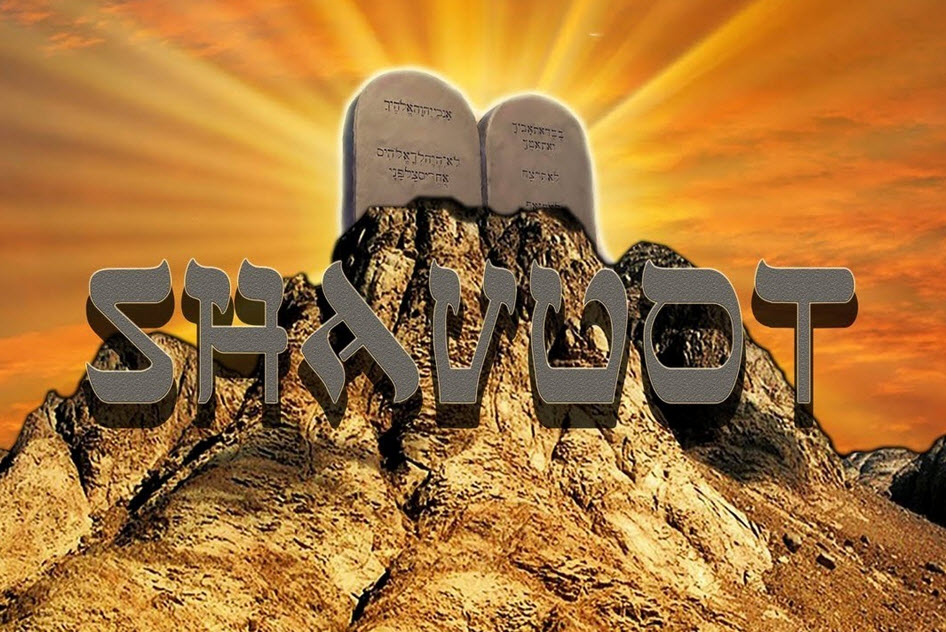By Hildegard Schneider
We once again enter into the time machine with the Ruach HaKodesh and the word of YHWH and travel back to the first Shavuot festival. In doing so, we recall YHWH’s instruction in the 3rd Book of Moses linking Passover to Shavuot:
“And you shall count for yourselves from the day after the Sabbath, from the day that you brought the sheaf for the wave offering: it shall be seven full weeks. Until the other day after the seventh sabbath, ye shall count fifty days.” Deuteronomy 23:15-16
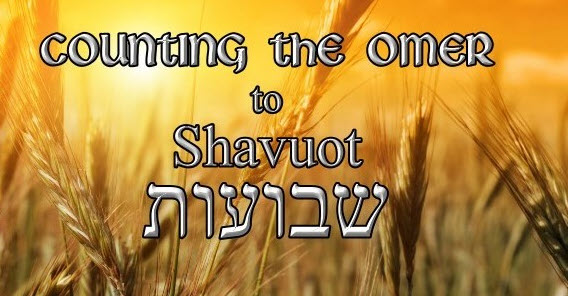
“And ye shall give a call on that very day – a holy convocation shall be unto you. No service work shall ye do: a perpetual ordinance in all your dwellings for your generations.” Deuteronomy 23:21
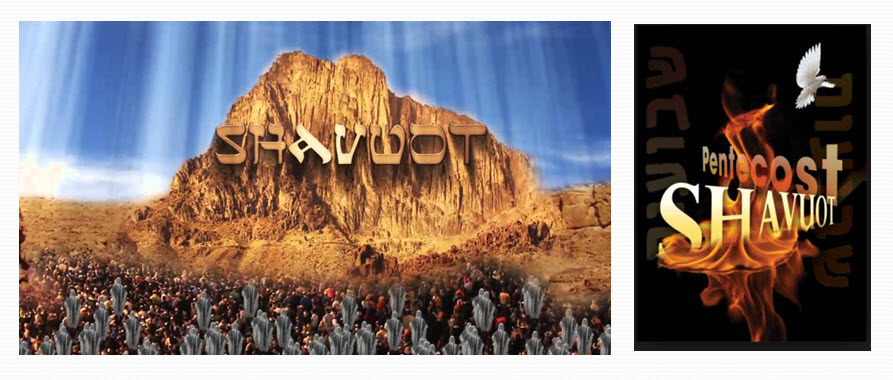
Shavuot is considered the conclusion of the celebration of Passover, especially since the two festivals are connected by the counting of the Omer like a chain. The big question is why are Passover and Shavuot considered one? I have never heard an interpretation of this.
To be able to understand this, let’s remember that a doorstep/threshold covenant was made on Passover; that was the way it was done in the Middle East at that time. YHWH used this very template for Passover so that not only the Israelites, but also the Egyptians could understand that it was a doorstep/threshold covenant. A covenant between two partners was made at the threshold by slaughtering an animal and collecting the blood in a trough walled into the threshold. After that, one partner stepped over the threshold into the other’s house and they held a covenant feast there. Afterward, a contract was drawn up containing all the terms of the alliance and this was placed in a special chest and was kept in a sanctuary.
This covenant agreement between YHWH and the children of Israel was missing. It was not handed over on Passover night. However, YHWH had already prepared this and would hand it over through Moses 50 days AFTER the exodus from Egypt.
It is interesting to note that the Ark of the Covenant is the first item mentioned in connection with the Tabernacle. (see Exodus 25:10-22). This ark is this very chest that was provided for the covenant copy, the two tablets of the law made of stone. Around the ark, the Tabernacle was created. Passover and Shavuot are one festival due to the threshold covenant, the Omer is also counted immediately following the Feast of Unleavened Bread, immediately after the High Shabbat, and not after the weekly Shabbat – otherwise, you would have a gap in the chain of connection and that makes no sense!
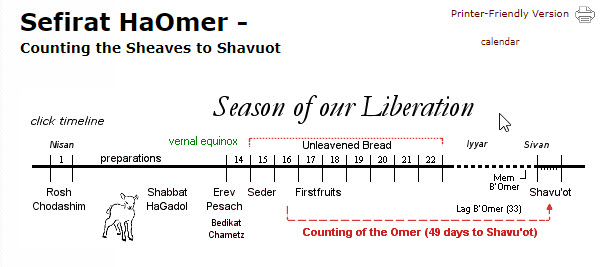
Based on all that we have covered so far, we need to go back a little further in our journey than the first Shavuot celebration.
“In the third month after the sons of Israel came out of the land of Egypt, on that very day they came into the wilderness of Sinai.” Exodus 19:1
That is, the Israelites traveled 46 days from their Passover Exodus to the Desert of Sinai; then they were instructed:
“And YHWH said to Moses, ‘Go to the people and sanctify them today and tomorrow, that they may wash their robes and be ready for the third day, for on the third day YHWH will come down before all the people to Mount Sinai.'” Exodus 19:10-11
We include these three days together with the 46 days, coming to 49 days. On the 50th day was the first Shavuot feast, also called Mattan Torah, the “giving of the Torah“, which is the covenant agreement mentioned earlier.
YHWH handed over the covenant conditions or also the constitution of His kingdom to His people on Shavuot. But He also established His Kingdom with them:
“But you are a chosen generation, a royal priesthood, a holy nation, a people for a possession, that you should proclaim the benefits of Him who called you out of darkness into His marvelous light” 1 Peter 2:9.
Shavuot means not only that YHWH wanted to dwell among His people, but even in them.
“And they shall make Me a sanctuary, that I may dwell in their midst.” Exodus 25:8
The phrase “in their midst“, in Hebrew is the word tavek, which means “in.” YHWH’s goal was to dwell IN THEM through the Ruach HaKodesh and to write the covenant transcripts on the table of their hearts.
But when YHWH had spoken the ten words of the covenant agreement with them, it is written:
“And all the people witnessed the thunder and the lightning and the sound of the trumpet and the smoking of the mountain. And when they saw these things, they fled and stood afar off, and said unto Moses, Speak thou unto us, and we will hear; but let not Elohim speak unto us, lest we die. And Moses said unto the people, Fear not: for Elohim is come to try you, that ye may see how he is to be feared, and that ye sin not. So the people stood afar off, but Moses drew nigh unto the darkness wherein was Elohim.” Exodus 20:18-21
The people were afraid of YHWH’s nearness and so His plan to dwell in them did not come to pass.
So the word remained upon the covenant tablets of stone before their eyes. And YHWH postponed his desire to dwell in them until later. He gave this promise to his prophet Jeremiah:
“Behold, days are coming, says YHWH, when I will make a new covenant with the house of Israel and with the house of Judah: not like the covenant I made with their fathers on the day I took them by the hand to bring them out of the land of Egypt – this my covenant they have broken, though I was their master, says YHWH. But this is the covenant that I will make with the house of Israel after those days, says YHWH: I will put my law within them and write it on their hearts. And I will be their Elohim, and they will be my people.” Jeremiah 31:31-33.
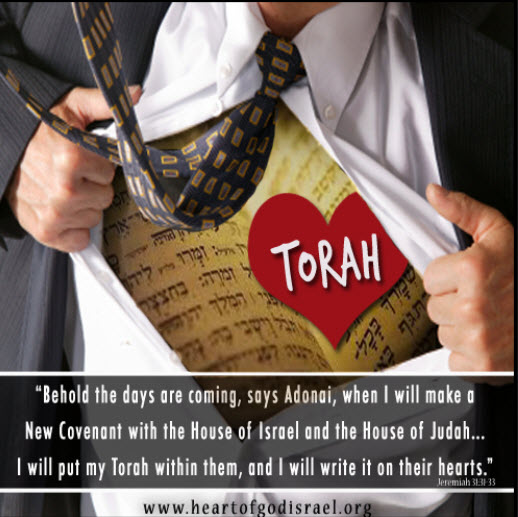
Here YHWH merely repeated His plan, which He always had with His people. And He repeated this plan also on Shavuot in Jerusalem, when He poured out His Ruach HaKodesh there. After Peter gave his message, the Word tells us:
“But when they heard, it pierced their hearts, and they said to Peter and the other apostles: What shall we do, brethren? But Peter said to them: Repent and be baptized every one of you in the name of Yeshua HaMashiach for the remission of your sins. And you will receive the gift of the Holy Spirit. For to you is the promise, and to your children, and to all who are afar off, as many as YHWH our Elohim will call.”
Acts 2:37-39)
To repent is to turn back to YHWH and His Torah, to receive forgiveness of sins, to be forgiven of Torah transgressions, and to refrain from those transgressions and reach out for His teachings and to Yeshua.
Through the centuries, Shavuot is tied to Passover by the counting of the Omer and commemorates the Mattan Torah, the receiving of the Torah, and the covenant agreement made at Passover. The terms of the covenant should be and were written by the Ruach HaKodesh on the heart tablets of the faithful for the renewal of the covenant. If you have never celebrated Passover, never counted Omer, and never celebrated Shavuot, that is, the receiving the terms of the covenant, then I invite you to consider keeping these festivals and their meaning.
We can repent on Shavuot and ask the Holy Spirit to write the terms of the covenant on our hearts. Just as the Holy Spirit did on Shavuot in Jerusalem:
“Let yourselves be saved from this perverse generation! Now those who received his word were baptized, and about three thousand souls were added that day. But they persevered in the apostles’ teaching and fellowship, in the breaking of bread and prayers.” Acts 2:40-42.
The apostles’ teaching was the teaching of the Torah; there was no Brit Hadashah, a New Testament, at that time.
Omer counting is an intense time of self-reflection and the time of Omer counting recalls the time when Yeshua appeared to many people after His resurrection. This was precisely during the time of counting the Omer.
Why didn’t Yeshua give his disciples the promised Holy Spirit right after his resurrection? Why did they have to wait 10 days after his ascension? Exciting question! Because Yeshua observed the prescribed time of 50 days between Passover and Shavuot until, in the fullness of time, the Ruach HaKodesh could be poured out…on the 50th day!
Yeshua is the living Torah.
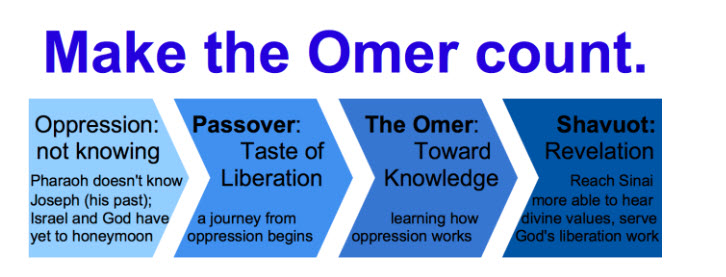
This year, Shavuot/Pentecost falls on Sunday, May 28, 2023
The children of Israel were called to kingship and were adorned with jewelry, some of which they still had even after the sin with the Golden Calf. They had given up their gold for the erection of the Golden Calf.
“When the people heard this evil speech, they mourned, and none put on their jewelry. For YHWH had said unto Moses, Say unto the sons of Israel, Ye are a stiff-necked people. If I were to go up in your midst for a moment, I would destroy you. And now put off your ornaments from you, and I will see what I can do for you. Then the sons of Israel stripped themselves of their ornaments, from Mount Horeb.” Exodus 33:4-6
But we know from the Word of YHWH that the remnant of Israel and all who cleave to them will again wear jewelry. The Renewed Covenant/New Testament mentions five heavenly crowns that will be given to believers. They are the imperishable crown, the crown of joy, the crown of righteousness, the crown of glory, and the crown of life.
“And the redeemed of YHWH shall return and come to Zion with rejoicing, and everlasting joy shall be upon their head. They shall obtain delight and joy, and sorrow and sighing shall flee away.” Isaiah 35:10
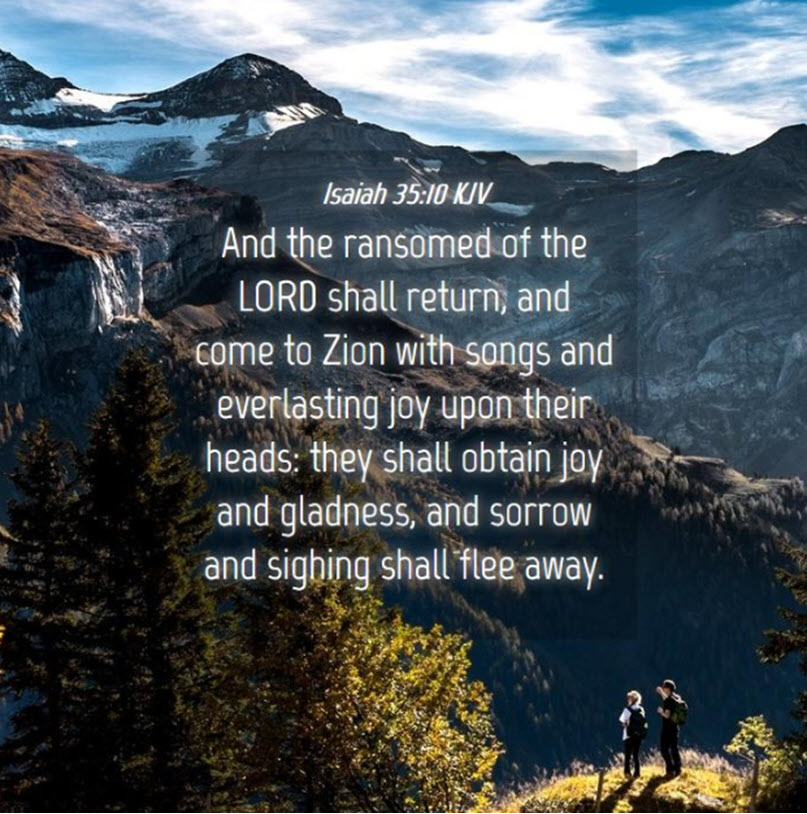
Do you not know that those who run in a race all run, but one receives the prize? Run in such a way that you may obtain it. And everyone who competes for the prize is temperate in all things. Now they do it to obtain a perishable crown, but we for an imperishable crown. 1 Corinthians 9:24-25
Prayer Targets
Pray into Jeremiah 31:31-33. Abba, dear Father, do not cease to write the instructions of Your Torah on my heart tablets through the Ruach HaKodesh.
Pray into Leviticus 23:15-16. Abba, dear Father, give me a deep understanding of the Feasts of Your dear Son Yeshua.
Pray into Acts 2:1-2. Abba, dear Father, use me to carry the truth of Shavuot/Pentecost into the Body of Messiah.
